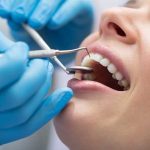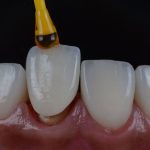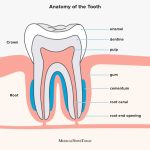Why Do My Teeth Hurt When I’m Sick? Understanding the Connection Between Illness and Dental Pain

It’s not uncommon to experience aches and pains throughout your body when you’re feeling under the weather. But have you ever noticed that your teeth can also be a source of discomfort during illness? Many people report dental pain or sensitivity when they’re sick, and there’s actually a scientific reason for this connection. Understanding the link between illness and dental pain can help you better manage your symptoms and reduce your discomfort. The human body is a complex system, and everything within it is interconnected. When you’re sick, your immune system is working hard to fight off the infection or illness that’s making you feel unwell. This immune response can cause inflammation throughout your body, including in your mouth and teeth. Inflammation in the gums and teeth can cause pain, sensitivity, and even toothaches. Additionally, certain illnesses can cause dehydration or dry mouth, which can also contribute to dental discomfort. By understanding the root cause of your dental pain during illness, you can take steps to alleviate your symptoms and get back to feeling like yourself again.
Understanding the connection between illness and dental pain is essential in maintaining overall health and well-being. In many cases, dental pain can be a symptom of an underlying illness or infection. For example, sinus infections or the flu can cause inflammation and pressure in the sinuses, leading to tooth pain. Additionally, some illnesses can weaken the immune system, making it more susceptible to dental infections. By recognizing the connection between illness and dental pain, individuals can take proactive steps to prevent or manage these issues, such as maintaining good oral hygiene, staying hydrated, and seeking medical attention when necessary. Ultimately, understanding this connection can help individuals maintain optimal health and reduce the risk of dental complications.
Sinus Infections and Tooth Pain
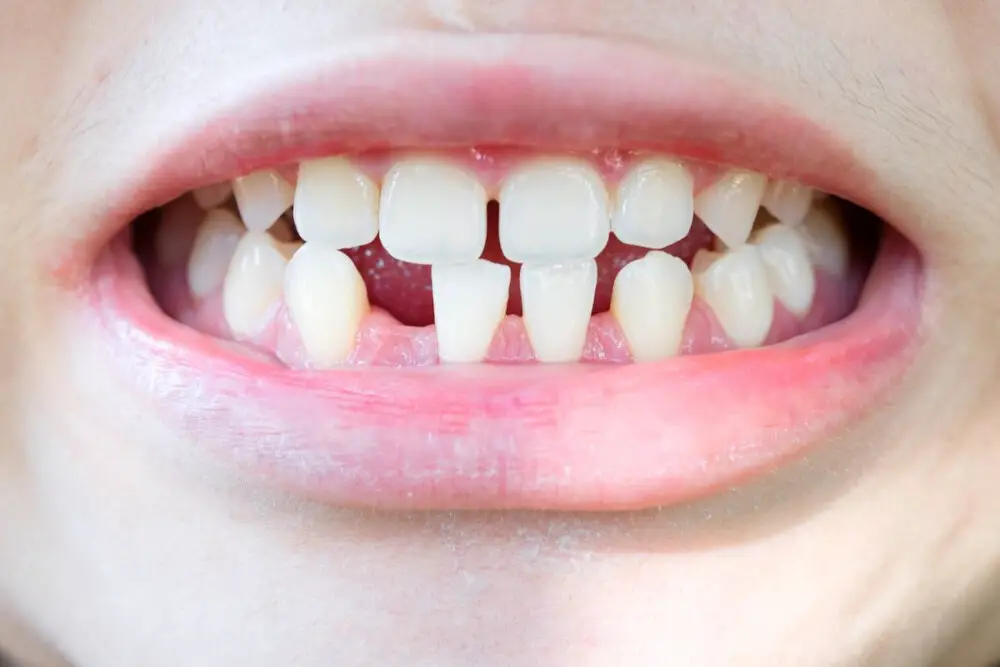
Sinus infections and tooth pain are often interconnected. Sinus infections can cause tooth pain, and tooth pain can be a symptom of a sinus infection. The sinuses and teeth are located in close proximity, which means that an infection in one area can easily spread to the other. When the sinuses become inflamed, it can put pressure on the roots of the teeth, causing pain and discomfort. Additionally, the sinuses are filled with air and when they become blocked, it can cause a buildup of pressure, resulting in tooth pain. This type of tooth pain is often described as a dull ache or pressure that is difficult to pinpoint. In many cases, sinus infections can be treated with antibiotics or other medications, which can help to alleviate tooth pain as well. It is important to note that not all tooth pain is caused by sinus infections. Tooth decay, gum disease, and other dental problems can also cause tooth pain, and these issues require prompt attention from a dentist. If you are experiencing tooth pain, it is important to schedule an appointment with your dentist as soon as possible to determine the cause of the pain and receive appropriate treatment. In some cases, tooth pain may be a symptom of a more serious underlying condition, such as a sinus infection or even a heart attack. Therefore, it is important to seek medical attention if you are experiencing tooth pain, especially if it is accompanied by other symptoms such as fever or difficulty breathing. Understanding the connection between illness and dental pain can help you to take better care of your teeth and overall health.
Sinuses are air-filled cavities located within the facial bones. When these structures become infected, they can cause a range of symptoms including tooth pain. This is because the sinuses are located in close proximity to the upper teeth and can place pressure on the roots of these teeth. Additionally, the nerves that supply the teeth can become irritated due to the inflammation in the sinuses, leading to pain and discomfort. In some cases, the pain may be localized to a specific tooth, while in others it may be more generalized. It is important to seek medical attention if you experience tooth pain during an infection, as it can be a sign of a more serious condition.
If you’re experiencing tooth pain when you’re feeling sick, it could be a sign of a sinus infection. Sinus infections occur when the nasal passages become inflamed, and the pressure can cause pain in the upper teeth. Symptoms of a sinus infection may include nasal congestion, facial pressure or pain, headache, and a fever. If you’re experiencing tooth pain along with these symptoms, it’s important to see a healthcare professional to receive a proper diagnosis and treatment plan. In some cases, antibiotics or other medications may be necessary to clear up the sinus infection and alleviate the dental pain.
Sinus-related tooth pain can be a frustrating symptom to deal with. Fortunately, there are several treatment options available to help alleviate the discomfort. Over-the-counter pain relievers like ibuprofen or acetaminophen can help manage pain and reduce inflammation. Decongestants and nasal sprays can also help relieve sinus pressure and alleviate tooth pain caused by sinusitis. In some cases, a course of antibiotics may be necessary to treat an underlying sinus infection. Additionally, practicing good oral hygiene and staying hydrated can help prevent tooth pain caused by sinus issues. If the pain persists or worsens, it is important to see a dentist or doctor to rule out any other potential causes.
Dehydration and Tooth Pain
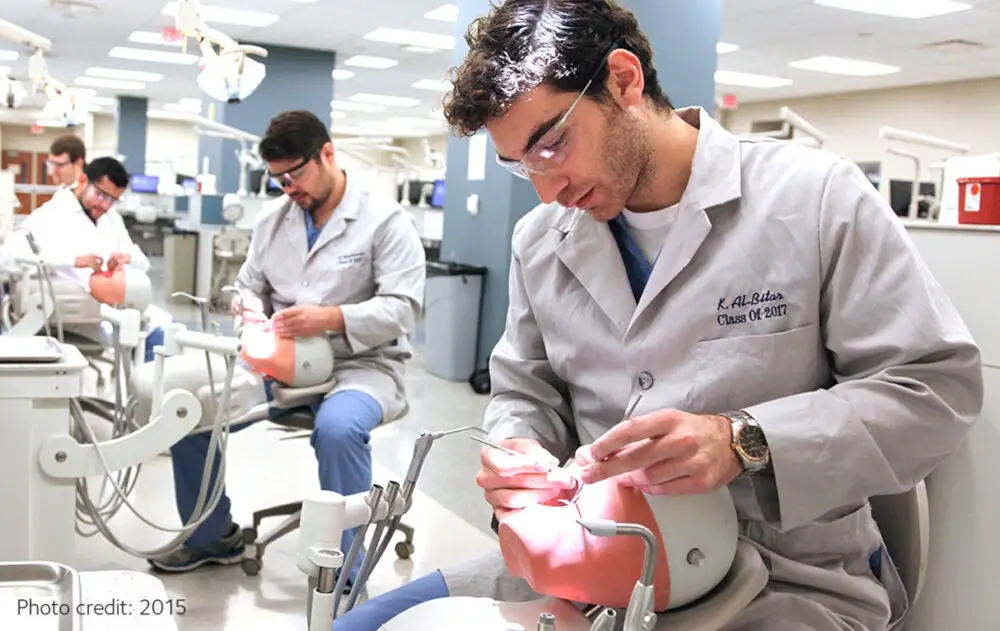
Dehydration is one of the common reasons for tooth pain during illness. Water is essential for maintaining healthy teeth and gums, and when the body is dehydrated, it can affect the mouth’s natural moisture. Saliva helps to rinse away bacteria and food particles that can lead to tooth decay and gum disease. When there is not enough saliva in the mouth, it can cause dryness, which can lead to tooth pain and sensitivity. In addition, dehydration can also lead to a decrease in the body’s ability to fight off infection, which can cause dental abscesses and other painful oral conditions. To prevent tooth pain during illness, it is important to stay hydrated by drinking plenty of water and avoiding sugary or acidic beverages that can damage the teeth. In addition, maintaining good oral hygiene habits such as brushing twice a day, flossing daily, and visiting the dentist regularly can help prevent dental pain and keep the mouth healthy. If tooth pain persists or worsens, it is important to consult with a dentist as soon as possible to identify and treat the underlying cause of the pain. By taking care of the mouth and staying hydrated during illness, individuals can help prevent tooth pain and maintain good oral health.
Dehydration can cause a range of symptoms beyond just thirst. Dizziness, fatigue, headaches, and muscle cramps are all common signs of dehydration. You might also notice a dry mouth, dry skin, or dark yellow urine. In severe cases, dehydration can lead to confusion, rapid heartbeat, and low blood pressure. It’s important to stay hydrated, especially when you’re sick, to help your body fight off illness and prevent dental pain. Drinking plenty of water and other fluids can also help keep your saliva flowing, which is essential for maintaining healthy teeth and gums.
Staying hydrated is essential to prevent tooth pain when you are sick. Drinking plenty of water throughout the day helps to keep your mouth moist, which reduces the risk of tooth decay and gum disease. You can also include fluids such as herbal tea, coconut water, and fresh fruit juices to keep yourself hydrated. Avoid sugary and acidic drinks, which can damage tooth enamel and cause sensitivity. Additionally, consuming foods with high water content, such as watermelon, cucumber, and celery, can also help to keep your body hydrated. Remember to maintain good oral hygiene habits, such as brushing and flossing regularly, to prevent tooth pain and other dental problems.
Medications and Tooth Pain

Tooth pain can be a significant discomfort when we are already suffering from an illness. Many medications prescribed for different illnesses can lead to tooth pain as a side effect. The most common medications that can lead to tooth pain include antibiotics, antihistamines, and antidepressants. Antibiotics can cause tooth discoloration, which can be a sign of enamel damage. Antihistamines, on the other hand, can cause dry mouth, which increases the risk of tooth decay and gum diseases. Lastly, antidepressants can cause bruxism, which is a condition where one grinds or clenches their teeth, leading to tooth pain and damage. If you are experiencing tooth pain while taking medication, it’s crucial to consult your doctor or dentist. Your doctor may suggest changing your medication or adjusting your dosage to minimize the side effects. Additionally, your dentist may suggest using fluoride treatments or dental sealants to protect your teeth from decay and damage caused by medication. It’s also important to maintain good oral hygiene practices, such as brushing and flossing regularly and visiting your dentist for regular check-ups. By doing so, you can minimize the impact of medication on your dental health and ensure a pain-free experience.
Certain medications can cause tooth pain as a side effect due to their acidic or erosive nature. For instance, antibiotics like tetracycline and doxycycline can stain and weaken the enamel, leading to tooth sensitivity and discomfort. In addition, chemotherapy drugs and radiation therapy for cancer can cause dry mouth, which reduces saliva production and increases the risk of tooth decay and gum disease. Pain relievers such as aspirin, ibuprofen, and naproxen can also cause toothaches by irritating the gums and causing inflammation. Furthermore, some medications used to treat high blood pressure, heart disease, and depression can cause xerostomia, a condition that reduces saliva flow and leads to tooth decay, gum disease, and bad breath. Therefore, it is crucial to consult with your healthcare provider and dentist to determine the underlying cause of your tooth pain and find an appropriate treatment plan.
There are several common medications that can cause tooth pain, either directly or indirectly. Antibiotics such as tetracycline and doxycycline can cause discoloration of teeth and weaken the enamel, making them more susceptible to pain and sensitivity. Pain relievers such as aspirin and ibuprofen can also cause tooth pain by irritating the gums and causing inflammation. Additionally, some medications used to treat high blood pressure and heart disease, such as calcium channel blockers, can cause gum overgrowth that can lead to tooth pain and sensitivity. It is important to inform your dentist of all medications you are taking to help identify any potential causes of tooth pain and develop an appropriate treatment plan.
If tooth pain is caused by medication, it is crucial to consult with a medical professional to address the issue. Depending on the medication, the dosage may need to be adjusted or changed entirely. It is important to never stop taking a prescribed medication without consulting with a doctor first. Additionally, over-the-counter pain relievers may provide temporary relief, but they should not be used as a substitute for proper medical treatment. It is also essential to maintain good oral hygiene practices, such as brushing and flossing regularly, to prevent further dental issues. By taking these steps, individuals can address tooth pain caused by medication and maintain their overall oral health.
Teeth Grinding and Tooth Pain
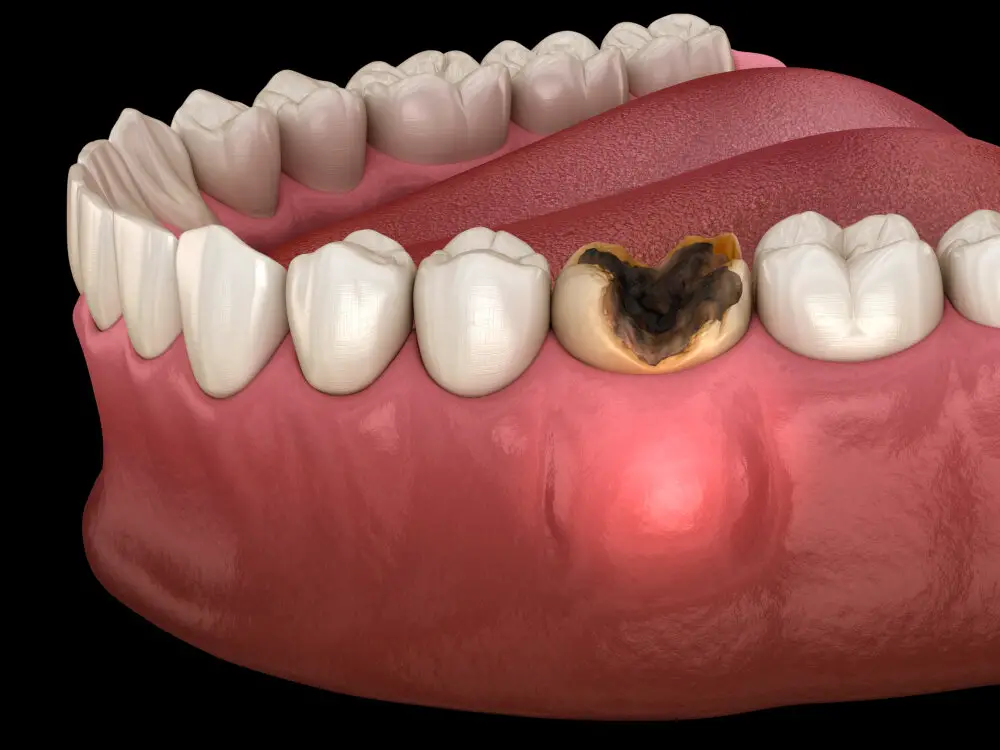
Teeth grinding and tooth pain are two common dental problems that can cause discomfort and even disrupt daily activities. Teeth grinding, also known as bruxism, involves the clenching and grinding of teeth, often unconsciously, while tooth pain can result from a variety of factors such as cavities, gum disease, or a cracked tooth. Both can be linked to illness, stress, and anxiety, and can worsen if left untreated. Teeth grinding can lead to tooth pain by wearing down the enamel, causing tooth sensitivity, and even fracturing or loosening teeth. It can also result in headaches, jaw pain, and earaches. Tooth pain, on the other hand, can be a symptom of various illnesses such as sinus infections, strep throat, or even the flu. In some cases, tooth pain can be so severe that it interferes with eating, speaking, and sleeping. Therefore, it’s important to seek dental attention if experiencing either of these dental problems, especially if it’s persistent or accompanied by other symptoms.
Teeth grinding, medically known as bruxism, involves the clenching and gnashing of teeth, often unconsciously during sleep or due to stress. While it may seem harmless, it can lead to significant tooth pain. The constant grinding and clenching put pressure on the teeth, causing them to become worn down, chipped, or cracked, which can expose the sensitive inner layers of the tooth, leading to pain. Additionally, the abnormal positioning of the jaw during grinding can put pressure on the surrounding muscles and nerves, leading to discomfort and pain. If left untreated, bruxism may lead to further dental problems, including tooth loss, gum disease, and temporomandibular joint (TMJ) disorder.
Tooth pain can be caused by various factors, and teeth grinding is one of them. If you experience tooth pain or discomfort, especially in the morning, it could be a sign that you grind your teeth during sleep. Other symptoms of teeth grinding, also known as bruxism, include headaches, jaw pain, and worn-down teeth. Your dentist may also be able to detect signs of bruxism during a routine checkup. If you suspect that you are grinding your teeth, it’s important to address the issue to prevent further damage to your teeth and alleviate any associated pain or discomfort.
Teeth grinding, also known as bruxism, can cause tooth pain and sensitivity. If the pain is related to teeth grinding, treatment options include wearing a mouthguard at night to protect teeth from damage and reduce grinding. In some cases, stress management techniques, such as relaxation exercises, may also be helpful in reducing teeth grinding. Additionally, your dentist may recommend a dental restoration, such as a crown or veneer, to protect and strengthen the affected tooth. It is important to address teeth grinding early on to prevent further damage and alleviate tooth pain.
Illness can trigger dental pain through various mechanisms. One cause is sinusitis, which inflames the sinuses and puts pressure on the roots of the upper teeth, leading to discomfort. Respiratory infections like the common cold can also cause soreness in the teeth due to congestion and inflammation of the nasal passages, which can spread to the teeth. Additionally, some medications taken during illness can reduce saliva production, leading to dry mouth and an increased risk of tooth decay and gum disease. Lastly, vomiting caused by illness can erode tooth enamel and cause sensitivity and pain. Therefore, it is important to maintain good oral hygiene and seek dental care when experiencing dental pain during illness.
Experiencing tooth pain during an illness is an indication that something is not right. It could be a sign of a dental issue that requires immediate attention. Seeing a dentist in such a scenario is crucial in identifying the root cause of the pain and addressing it before it gets worse. Ignoring tooth pain can lead to more severe dental problems and even aggravate the existing illness. A qualified dentist will perform a thorough examination, provide a precise diagnosis, and recommend suitable treatment options. Therefore, it is essential to prioritize dental health, especially during illnesses, to maintain overall well-being.
In conclusion, the connection between illness and dental pain is a complex and multifaceted issue. While some illnesses can directly cause dental pain, such as sinus infections or respiratory infections, others may exacerbate pre-existing dental conditions. It is essential to maintain good oral hygiene habits and seek dental care promptly to prevent and treat dental pain during illness. Additionally, taking care of your overall health through proper nutrition, sleep, and stress management can also help reduce the risk of illness and associated dental pain. Understanding the connection between illness and dental pain can help individuals take proactive steps to protect their oral health and overall well-being.
Conclusion

In conclusion, the connection between illness and dental pain is a complex and multifaceted issue. While there are several possible explanations for why our teeth may hurt when we are sick, the most common causes include sinus infections, tooth decay, and gum disease. It is important to seek proper medical and dental care if you experience dental pain while sick, as timely treatment can prevent further complications and discomfort. Additionally, maintaining good oral hygiene habits and staying healthy overall can help reduce the risk of experiencing dental pain during illness. By understanding the connection between illness and dental pain, we can take proactive steps to protect our oral health and overall well-being.
